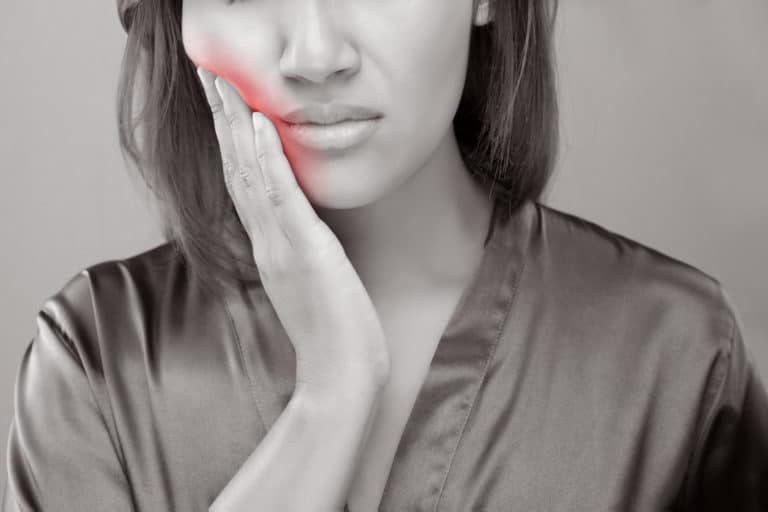Understanding “TMJ”
If you are experiencing such diverse symptoms as frequent headaches, a clicking jaw, or unusual wear patterns on your teeth, you may be suffering from temporomandibular joint disease, or “TMJ”. This potentially serious and often progressive disease can wreak havoc on your jaw joint and the structures that support it. Fortunately, “TMJ” can be halted with prompt diagnosis and treatment.

“TMJ” Cause
The temporomandibular joint is a sort of sliding hinge that connects the jawbone to the skull. Discs and cartilage cushion the joint, allowing it to operate smoothly. When you have “TMJ”, though, the joint may be misaligned.
There is speculation that some cases of “TMJ” are related to hormonal fluctuations, as it is most common in women aged 20 to 40. In addition, it sometimes appears after jaw trauma, pathologies, degenerative conditions and may have a muscular and /or vascular component to it. There are as many as 35 million sufferers in the United States. However, because of the multifactorial nature of “TMJ”, this disorder may have in many patients more than one factor contributing to the problem.
“TMJ” is often thought to be stress-related, because anxiety often leads to jaw clenching or tooth grinding. However, TMJ generally features an actual structural misalignment of the teeth. Chewing pulls the jaw out of alignment to create a better bite, putting intense pressure on the joint and the surrounding muscles and causing popping, clicking, and pain.
Symptoms of TMJ
“TMJ” is a highly personalized disorder, and no two people have exactly the same experience. Still, there is a cluster of symptoms that are commonly associated with “TMJ”:
- Jaw pain or soreness
- Earaches
- Headaches
- Pain in the face
- Difficult or painful chewing
- Jaw sounds such as clicking, popping, or grating
- Joint lockup, making it difficult or painful to fully open or close the mouth
“TMJ” Treatment Options
“TMJ” treatment is designed in most cases to relax the jaw by realigning the joint and the bite. This eliminates or reduce pain, allowing normal functioning, and halts the disease. Because each case is unique, there is no one-size-fits-all treatment. Depending on your needs, we may use one or more of the following solutions:
- Medication
- Bite splint or orthotic
- Physical therapy
- Equilibration and functional reconstruction
- Multi-disciplinary intervention
There are also additional, highly specialized treatments that may be appropriate. We will fully assess your bite and jaw function and make customized recommendations based on what we find. The treatment process often requires several appointments, but most patients agree that it is well worth the time commitment.
Home Remedies
Some mild cases of “TMJ” respond well solely to home treatments. Most of the time, though, we will recommend home remedies in conjunction with in-office procedures. Here are some common home care suggestions:
Soft foods: Treatment will eventually restore full functionality in the jaw, but it may be necessary to switch to soft foods during the early days of treatment to give your jaw a rest. Choose foods such as scrambled eggs, yogurt, fish, and cooked vegetables, and avoid sticky or hard to chew items until the pain subsides.
Ice packs / hot compresses: We may recommend ice packs or hot compresses depending on your specific needs.
Intentional relaxation: Although stress alone is unlikely to cause “TMJ”, jaw tension can worsen your symptoms. Practice intentional relaxation throughout the day. Become aware of how you are holding your jaw, and try to keep your teeth slightly apart. Minimize big movements such as singing or yelling.
Avoid chewing gum or ice: Chewing tends to be painful when you have “TMJ”, so avoid all unnecessary chewing while your jaw heals.
Over the counter pain medications: Provided you have no contraindications due to health status or current medications, over the counter pain relievers can help you feel significantly better. We can also prescribe something stronger if over the counter remedies are not working for you.
Ready to Get Started?
If you are ready to start your TMJ treatment with a highly skilled and compassionate Tampa Bay area orthodontist, call Guzman Orthodontics today at (813) 887-5555 to schedule your complimentary consultation.






